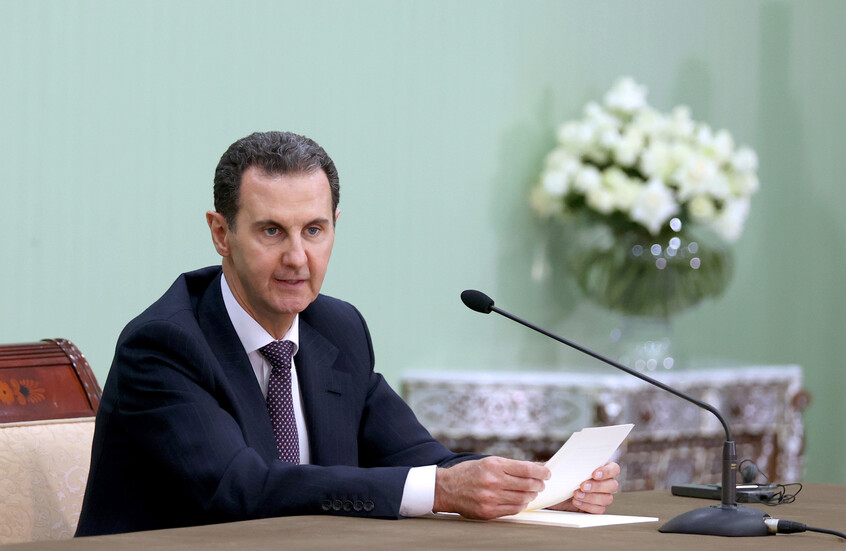French Court Cancels Arrest Warrant for Bashar al-Assad

The Court of Cassation (the highest court in the French judiciary) issued a decision today, Friday, indicating the cancellation of an arrest warrant against former Syrian President Bashar al-Assad.
The Court of Cassation ruled to cancel the warrant against Assad on charges of carrying out chemical attacks in 2013, resulting in the deaths of over a thousand people.
These attacks, attributed to the Syrian government, were carried out on August 4 and 5, 2013, in the areas of Adra and Douma (Rif Dimashq), resulting in 450 injuries, and on August 21 in Eastern Ghouta, where over a thousand people were killed, according to US intelligence, with sarin gas.
The French authorities issued the arrest warrant against Assad in November 2023, accusing the former Syrian president of "complicity in war crimes and crimes against humanity in this case," despite the Syrian authorities denying involvement and blaming the rebels at the time.
The French judiciary addressed the case under the principle of universal jurisdiction, allowing the court to prosecute individuals for serious crimes committed in other countries.
An investigation based on testimonies of survivors and defected military personnel, as well as photos and videos, led to the issuance of arrest warrants against Assad, his brother Maher who led an elite military unit, and two generals.
The prosecutors agreed to three of the arrest warrants but appealed against those targeting Assad, arguing that "he should enjoy immunity as a head of state."
However, the Court of Appeal in Paris upheld the ruling in June of last year, prompting the prosecutors to appeal once again.
Bashar al-Assad and his family currently reside as refugees in exile in the Russian capital, Moscow, after Russian President Vladimir Putin granted them asylum when the Syrian armed opposition took control of Damascus in a swift advance on December 8, 2024.
Following the cancellation of the arrest warrant in France by the Court of Cassation, investigating judges may issue a new warrant.